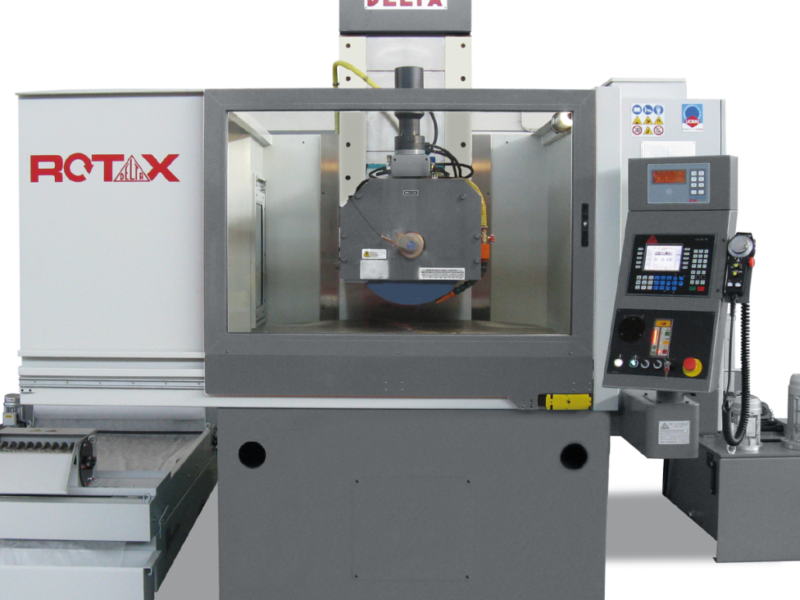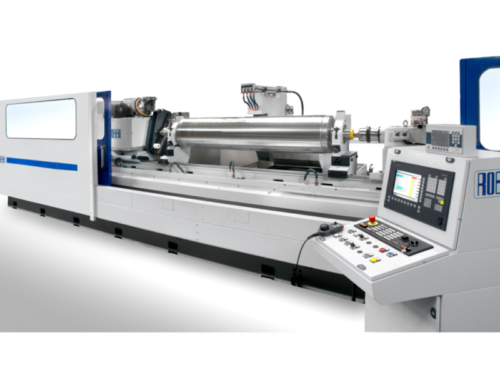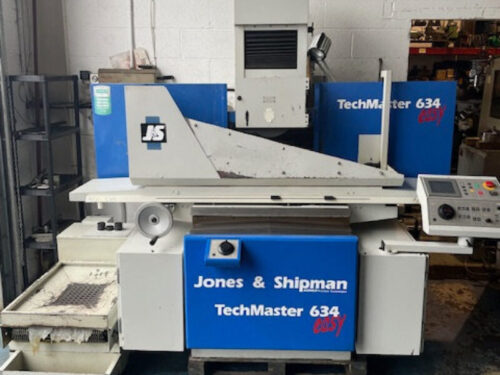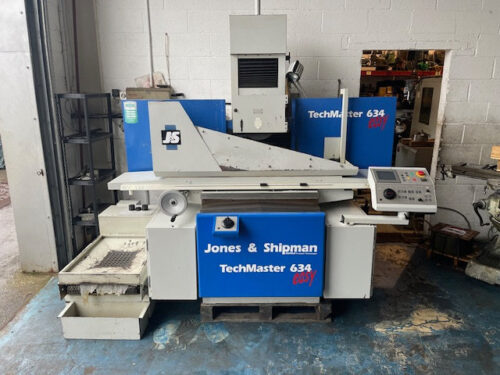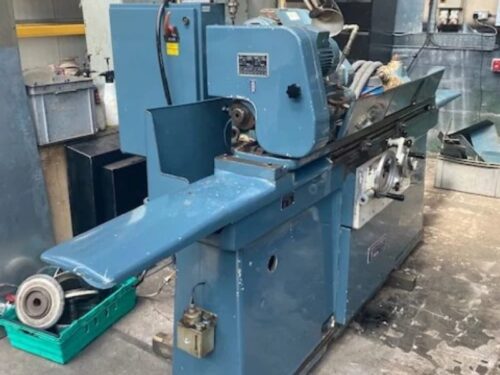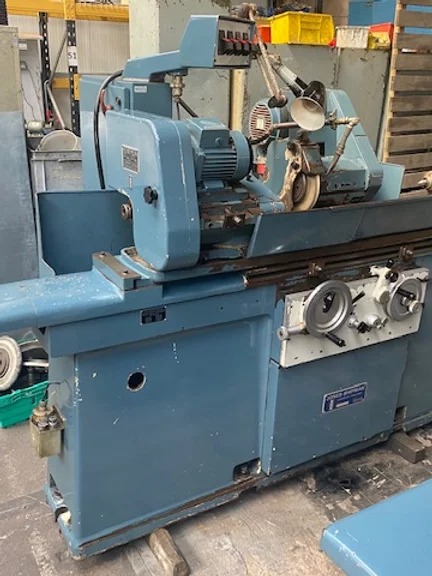DESCRIPTION & SPECIFICATIONS
Rotary table horizontal spindle grinding machine with travelling column and hydrostatic ways. Travelling column with stabilised Meehanite cast iron structure, maximum rigidity. Hydrostatic support on all machine axles with full grip slideways. User friendly automation levels.
SPECIFICATION |
|
| Maximum grinding diameter | 1200mm |
| Rotary table diameter | 1100mm |
| Vertical grinding height with new wheel (dia 500mm) | 600mm |
| Admissible mass on the table | 1500kg |
| Transversal axis travel | 900mm |
| Maximum distance between table and spindle axis | 850mm |
| Vertical axis speed | 1.5m/min |
| Minimum increment | 0.001mm |
| Spindle motor power (duty S1) | 18.5kW |
| Wheel speed (50Hz) | 1450rpm |
| Standard wheel dimensions OD x W x BD | 450 x 100 x 127mm |
| Wheel recess dimensions both sides | 220 x 20/30mm |
| Max. wheel dimensions OD x W x BD | 500 x 100 x 127mm |
| Wheel recess dimensions both sides (only with digital inverter – option M20) | 220 x 20/30mm |
| Machine rough mass | 9000kg |
| Standard machine voltage | 400V / 3 phases / 50Hz + N + PE |
| Standard machine colour | RAL 7037 (dust grey) RAL 7035 (light grey) |
TRAVELLING COLUMN with stabilised Meehanite cast-iron structure:
- maximum rigidity
- removes a large amount of material
- flatness guaranteed
With the travelling column, the wheelhead is fully supported
HYDROSTATIC SUPPORT ON ALL MACHINE AXLES WITH FULL GRIP SLIDEWAYS. All the machine axles feature full grip hydrostatic slideways along the entire travel. This involves:
- absence of anti-friction material (turcite)
- zero friction (optimal exploitation of the installed power)
- zero wear (geometry guaranteed for a long period of time)
- No stick-slip. Extremely smooth movements
Available with three levels of control automation available:
DIASTEP
The DIASTEP unit manages all the machine functions, displays the axles, and allows you to set an automatic grinding cycle through the guided menu, thereby facilitating the operator’s task. Its control flexibility allows you to modify the entered parameters without interrupting the cycle.
Depending on the different types of machining (continuous, pulse, plunge grinding), the cycle consists of the following stages: rough grinding, finish grinding, spark out, automatic dressing with compensation, and disengagement of the axes at the end of the cycle.
The accurate self-diagnosis allows anomalies to be controlled and displayed through alarm messages, thereby enabling unattended machining operations
CN PLUS TOUCH SCREEN
CN plus ensures higher automation.
In particular, in addition to that described for the DIASTEP unit, it allows more workpieces to be stored in the memory, as well as linear and interpolated wheel dressing on the table to use wheels with parametric profiles, multi-surface machining, and shoulder grinding on the Y-axis.
CNC BASED ON SIEMENS SINUMERIK 840D SL
The decades of experience in flat surface grinding has allowed us to create a user-friendly, yet powerful and complete operator-machine interface. We provide a large number of options, such as table wheel dressing with one or more diamonds or with a diamond dressing disc; integrated CAD-CAM to generate and dynamically simulate profiles whilst optimising the movement of the tool both for the grinding wheel and for the machining surface.
The parameters related to machined workpieces and used grinding wheels can be saved in a file on the hard disk of the control unit and retrieved when needed. Moreover, an unlimited number of workpiece machining cycles can be recalled in sequence.

